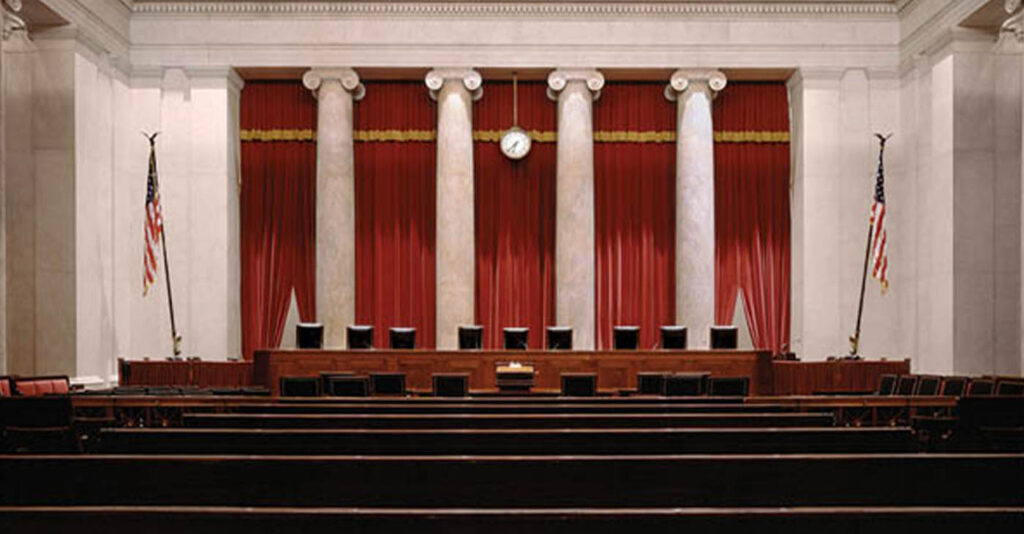Hard-fought consumer victories now at risk
By Charlene Crowell
The Supreme Court issued several consequential rulings in its recently concluded term. One such decision reversed a 40-year precedent commonly known as the Chevron doctrine, that gave federal agencies the authority to write rules that enforced and implemented laws passed by Congress.
But on June 28, a sweeping majority opinion authored by Chief Justice John Roberts ignored judicial precedent to hold that only the courts would decide regulation. In the SCOTUS majority view, judges alone would now decide highly specialized rules crafted to maintain reliable consumer safety standards governing our food, public health, occupational safety, clean water, higher education and more, bypassing the high-level expertise of civil servants in affected agencies.
Roberts’ opinion included: “Perhaps most fundamentally, Chevron’s presumption is misguided because agencies have no special competence in resolving statutory ambiguities. Courts do… Courts must exercise their independent judgment in deciding whether an agency has acted within its statutory authority.”

For Black and Latino Americans, this power-grab by the court throws into doubt and potentially weakens current agency rules that sought to bring us closer to the nation’s promises of freedom and justice for all. In two particular areas – fair housing and financial regulation – many hard-won victories aimed at addressing inequalities could be opened up to review and reversal.
In a scorching dissent, Associate Justice Elena Kagen, joined by Justices Sonya Sotomayor and Ketanji Brown-Jackson, outlined the consequences of the majority ruling.
“In one fell swoop, the majority today gives itself exclusive power over every open issue—no matter how expertise-driven or policy-laden—involving the meaning of regulatory law,” wrote Kagen. “As if it did not have enough on its plate, the majority turns itself into the country’s administrative czar…Today’s decision is not one Congress directed. It is entirely the majority’s choice.”
For example, the 1968 Fair Housing Act was strengthened by a HUD rule known as Affirmatively Furthering Fair Housing (AFFH). Originally a 2015 initiative of the Obama administration, an updated version was proposed in 2023 by the Biden administration that according to HUD would “achieve integrated living patterns, overcome historic and existing patterns of segregation, reduce racial and ethnic concentrations of poverty, increase access to homeownership, and ensure realistic and truly equal access to opportunity and community assets.”
Central to the rule was the development of written local ‘Equity Plans’ that incorporated citizens’ concerns into a meaningful plan of action.
Similarly, the Consumer Financial Protection Bureau (CFPB), created by 2010’s Dodd-Frank Wall Street Reform & Consumer Protection Act, implemented in 2017 a payday lending rule that required requiring lenders to determine whether consumers had the ability to repay before approving predatory loans like payday, vehicle title and certain other high-cost installment ones.
But two years later, a change in administration and agency director led to a court-ordered stay in rule implementation. In response, a coalition of advocates that included the Center for Responsible Lending wrote then-CFPB Director Kathleen Kraninger with warnings of how the agency was abandoning its consumer protection mission.
“[S]ince its 2017 leadership change, the CFPB has repeatedly failed to support the August 19, 2019, compliance date the agency established for these important provisions,” the coalition wrote in part. “The Rule’s payments provisions will protect consumers from significant harm by restricting an unfair and abusive practice: payday and vehicle-title lenders’ repeat attempts to debit borrowers’ bank accounts, after two consecutive withdrawal attempts fail due to insufficient funds… These safeguards are important under any circumstance, but even more so because the agency has delayed and is proposing to undo the ability-to-repay protections.”
With yet another change of administration, in 2020 and under current President Joe Biden, CFPB updated the rule, to include emerging predatory loans like longer-term loans with balloon payments, and other consumer loans that charged 36 percent annual percentage rates (APR) or higher.
Strong and swift reactions to the Chevron reversal came from academicians and advocates.
“When I went to law school, the most conservative legal scholars railed against just such creep of judicial policymaking,” said Deborah A. Sivas, a chaired professor at Stanford Law School in a recent Q&A blog. “Now they basically embrace it.”
“Beyond the SAVE repayment plan and student loan forgiveness, this ruling could also have an impact on other regulations from the Education Department including gainful employment,” according to a statement by the National Association of Student Financial Aid Administrators (NASFAA).
“This is a seismic shift,” noted Senator Amy Klobuchar, a member of that chamber’s Judiciary Committee. “Congress passes laws and then federal agencies use their deep knowledge and expertise to implement them. In overturning decades of settled law, this extreme Court has given itself the power to second guess even the most complex regulatory decisions. This decision will result in chaos and undermine our ability to protect the health and safety of all Americans.”
Charlene Crowell is a senior fellow with the Center for Responsible Lending. She can be reached at Charlene.crowell@responsiblelending.org.




